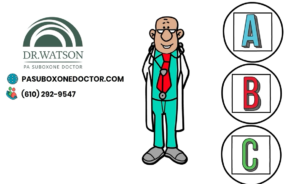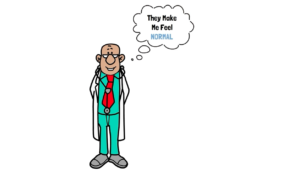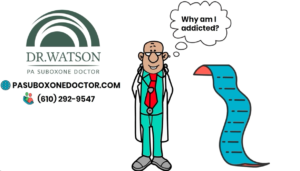In alcohol addiction, medication-assisted treatment is a useful tool for recovery. MAT couples medications with behavioral counseling and therapy for a better, long lasting recovery . There are a huge range of medications, one being naltrexone, that can work for patients; that’s why it’s essential to find a doctor with experience in crafting an individualized treatment plan for patients. Dr. Watson, in Philadelphia, has over 17 years of experience with addiction treatment. Contact him today to learn more.
AUD treatment uses many medications that work differently such as Naltrexone, acamprosate, and disulfiram. Acamprosate reduces cravings and reduces the symptoms of withdrawal. Disulfiram helps reduce cravings by creating negative reactions when consuming alcohol. Naltrexone treats AUD by reducing cravings and reducing the pleasant effects of alcohol. In this article, we’ll explore Naltrexone.
What is naltrexone and how does it work?
Naltrexone is a medication used to treat OUD, Opioid Use Disorder, and AUD, Alcohol Use Disorder. It works by subduing the positive effects of opioid and alcohol on the body. It directly blocks opioid receptors, leading to less cravings. Binding to endorphin receptors, this medication also blocks the euphoric effects of alcohol. Coming in the form of a daily pill for AUD or a monthly injection for both AUD and OUD, the medication also presents no risk of physical dependence.
How effective is naltrexone?
The medication provides many benefits for those in medication-assisted treatment.The NIH found that it reduced the number of heavy drinking days by about 25%. It also has significant results in lowering drinking to acceptable levels. A ContrAL program revealed that it had a 78% success rate in reducing drinking to acceptable levels. Many patients completely abstained from alcohol consumption by the final month of the program.
Furthermore, a study in Russia found that those receiving extended-release naltrexone achieved a 90% abstinence rate, significantly higher than the 35% seen in the placebo group. The medication group also had better treatment retention at 58% versus the placebo group at 42%. They also had lower relapse rates at 0.8% versus the placebo group at 13.7%. Another key factor in keeping relapse rates low is medication in conjunction with therapy, MAT. If you’re in the Philadelphia area and want to learn more about MAT options, contact Dr. Watson today.
Can you drink while on Naltrexone? Are there drug interactions with naltrexone and alcohol?
While technically you can consume alcohol while on naltrexone with limited interactions; it is advised against doing so. This is because the medication does not block the negative effects of alcohol; rather, it lessens the enjoyability of the experience. Thus, you’d still be feeling the adverse effects of alcohol, including slow brain functioning, depression, anxiety, dizziness, and memory impairment.
Curious about trying out Naltrexone?
Naltrexone plays a critical role specifically in medication-assisted treatment for AUD. The medication elevates therapy and counseling by reducing alcohol cravings and blocking the pleasant effects of alcohol. Furthermore, it yields significant results in an overall reduction of alcohol consumption, resulting in a quicker, easier recovery. Are you interested in medication-assisted treatment and exploring medications such as Naltrexone with an experienced clinician? Contact Dr. Watson in Philadelphia today.
Sources:








